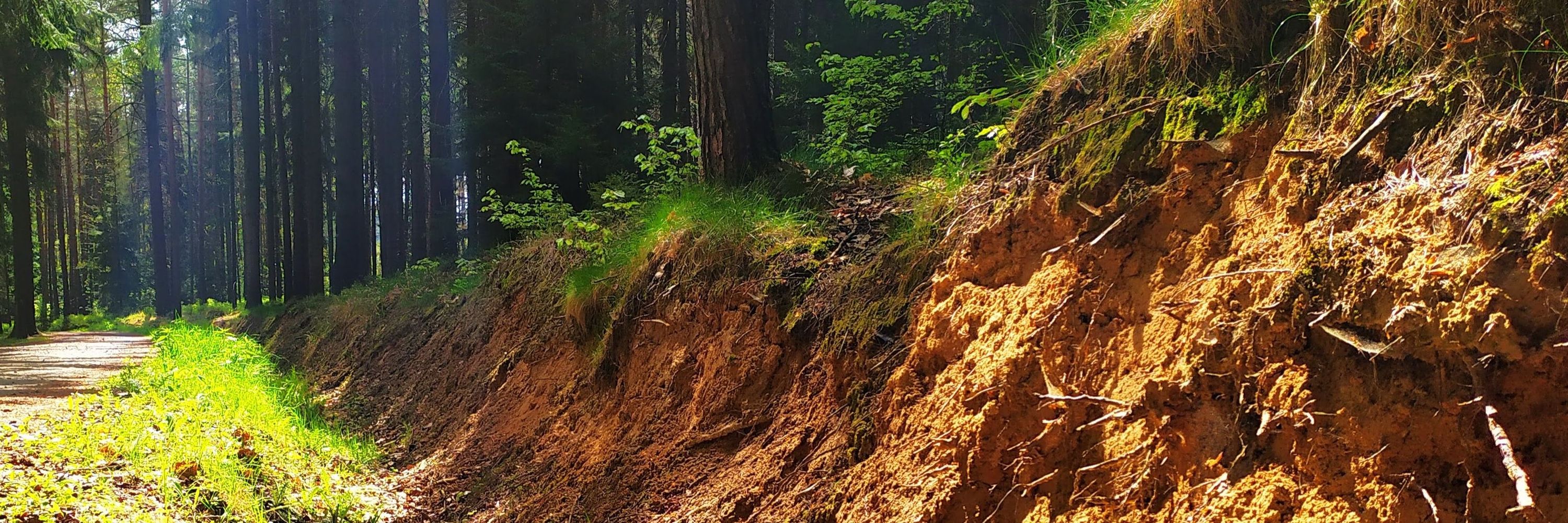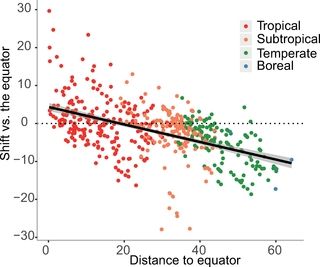
@olgavinduskova.bsky.social
Assistant Professor at Institute for Environmental Studies
@sciencecharles.bsky.social with a thing for soil. Environmentalist 🌿🦠🌏. Aspiring ally ✊🏿🏳️🌈.
@sciencecharles.bsky.social with a thing for soil. Environmentalist 🌿🦠🌏. Aspiring ally ✊🏿🏳️🌈.
Reposted
"We notably predict that Madrid’s climate in 2050 will resemble Marrakech’s climate today, Stockholm will resemble Budapest, London to Barcelona, Moscow to Sofia, Seattle to San Francisco, Tokyo to Changsha"
By 2050!
journals.plos.org/plosone/arti...
By 2050!
journals.plos.org/plosone/arti...

Understanding climate change from a global analysis of city analogues
Combating climate change requires unified action across all sectors of society. However, this collective action is precluded by the ‘consensus gap’ between scientific knowledge and public opinion. Her...
journals.plos.org
March 27, 2025 at 6:41 PM
"We notably predict that Madrid’s climate in 2050 will resemble Marrakech’s climate today, Stockholm will resemble Budapest, London to Barcelona, Moscow to Sofia, Seattle to San Francisco, Tokyo to Changsha"
By 2050!
journals.plos.org/plosone/arti...
By 2050!
journals.plos.org/plosone/arti...
🙏Very grateful for the opportunity to join this experiment at @uantwerpen.be using the FATI facility under @anaeeeric.bsky.social and support from @ec.europa.eu #MarieSkłodowskaCurie
March 9, 2025 at 6:11 PM
🙏Very grateful for the opportunity to join this experiment at @uantwerpen.be using the FATI facility under @anaeeeric.bsky.social and support from @ec.europa.eu #MarieSkłodowskaCurie
Why does this matter?
These changes indicate soil degradation, potentially reducing the soil’s resilience to future climate change stressors like droughts, heatwaves or heavy rainfall.
#ClimateChange #SoilHealth #Geoderma #SoilDegradation
These changes indicate soil degradation, potentially reducing the soil’s resilience to future climate change stressors like droughts, heatwaves or heavy rainfall.
#ClimateChange #SoilHealth #Geoderma #SoilDegradation
March 9, 2025 at 6:11 PM
Why does this matter?
These changes indicate soil degradation, potentially reducing the soil’s resilience to future climate change stressors like droughts, heatwaves or heavy rainfall.
#ClimateChange #SoilHealth #Geoderma #SoilDegradation
These changes indicate soil degradation, potentially reducing the soil’s resilience to future climate change stressors like droughts, heatwaves or heavy rainfall.
#ClimateChange #SoilHealth #Geoderma #SoilDegradation
Key findings: 👇
🔹 Longer dry/wet periods reduced soil aggregate stability.
🔹 Water retention and infiltration declined.
🔹 Bulk density increased, making soil more compact.
🔹 Soil water repellency (SWR) changed depending on how the plants did.
🔹 Longer dry/wet periods reduced soil aggregate stability.
🔹 Water retention and infiltration declined.
🔹 Bulk density increased, making soil more compact.
🔹 Soil water repellency (SWR) changed depending on how the plants did.
March 9, 2025 at 6:11 PM
Key findings: 👇
🔹 Longer dry/wet periods reduced soil aggregate stability.
🔹 Water retention and infiltration declined.
🔹 Bulk density increased, making soil more compact.
🔹 Soil water repellency (SWR) changed depending on how the plants did.
🔹 Longer dry/wet periods reduced soil aggregate stability.
🔹 Water retention and infiltration declined.
🔹 Bulk density increased, making soil more compact.
🔹 Soil water repellency (SWR) changed depending on how the plants did.
With climate change, precipitation regimes are becoming more persistent—longer dry periods are alternating with longer wet periods. We tested how this affects soil in a 16-month grassland mesocosm experiment.

March 9, 2025 at 6:11 PM
With climate change, precipitation regimes are becoming more persistent—longer dry periods are alternating with longer wet periods. We tested how this affects soil in a 16-month grassland mesocosm experiment.

